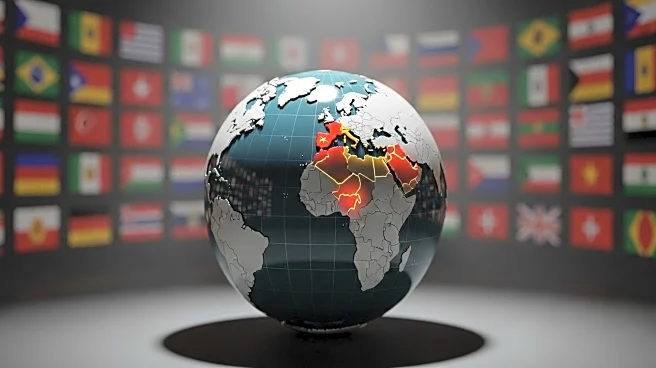What is the story about?
What's Happening?
The United Nations Security Council has reinstated sanctions on Iran following the collapse of nuclear negotiations with the United States. This decision comes after accusations that Iran violated the 2015 nuclear deal, leading to the reactivation of the 'snapback' mechanism. The sanctions, which were lifted a decade ago, include an arms embargo, bans on uranium enrichment and ballistic missile activities, and the freezing of Iranian assets. Despite the sanctions, U.S. Secretary of State Marco Rubio emphasized that diplomacy is not over, urging Iran to engage in direct talks. European countries, including Britain, France, and Germany, have also expressed their commitment to finding a diplomatic solution to prevent Iran from obtaining nuclear weapons.
Why It's Important?
The reinstatement of sanctions on Iran has significant implications for international relations and regional stability in the Middle East. The sanctions aim to pressure Iran into compliance with international nuclear agreements, but they also risk escalating tensions between Iran and Western countries. The move could impact global oil markets and economic conditions in Iran, potentially leading to further geopolitical instability. The decision underscores the challenges of nuclear non-proliferation and the complexities of diplomatic negotiations involving multiple global powers.
What's Next?
The international community will be closely monitoring Iran's response to the renewed sanctions. There is potential for increased diplomatic efforts to resume negotiations, with European countries and the U.S. seeking to bring Iran back to the negotiating table. The situation may also lead to further diplomatic engagements at the United Nations and other international forums. The outcome of these efforts will be crucial in determining the future of Iran's nuclear program and regional security dynamics.
















